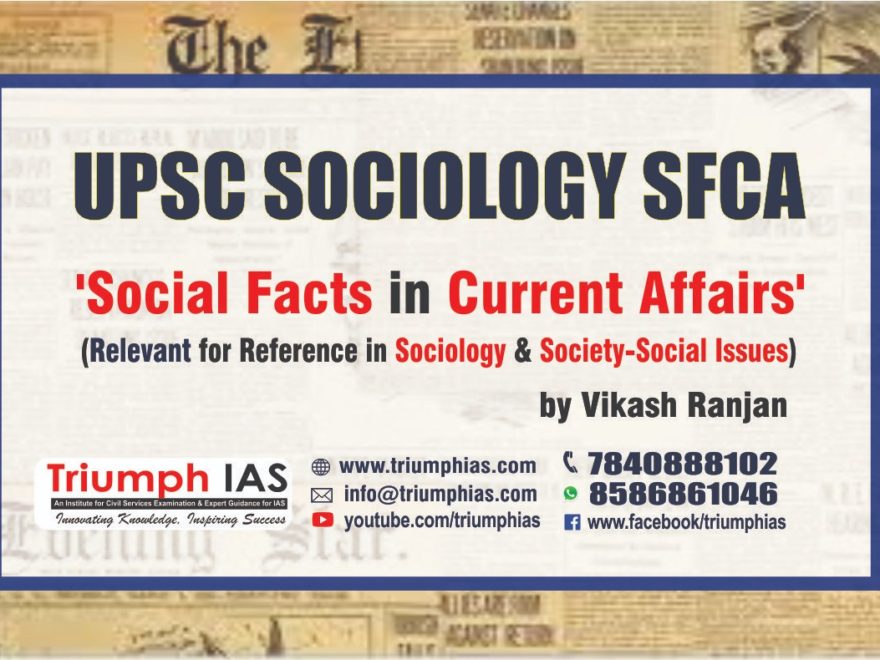NEW EDUCATION POLICY 2020: A RAY OF HOPE
- (Relevant for Sociology Syllabus: Paper 1 – Social Change in Modern Society ; PAPER-2 –Visions of Social Change in India)
- (Relevant for GS Syllabus: Paper 1- Social empowerment.)
- The National Education Policy was framed in 1986 and modified in 1992. Now, considering the significant changes that have taken place in our country, society, economy, and the world at large since then, the Union Cabinet approved the New Education Policy (NEP).
- Starting from changing the name of the Ministry of Human Resource Development to the Ministry of Education, many other changes, especially the decentralisation of the education system, have been announced in the policy.
- “The new education policy will also be building character and creating holistic and well-rounded individuals equipped with the key 21st-century skills. Specific sets of skills and values across domains will be identified for integration and incorporation at each stage of learning, from pre-school to higher education.
- Curriculum content will be reduced in each subject to its core essentials, and make space for critical thinking and more holistic, inquiry-based, discovery-based, discussion-based, and analysis-based learning. The mandated content will focus on key concepts, ideas, applications, and problem-solving. Teaching and learning will be conducted in a more interactive.
- A National Assessment Centre, PARAKH (Performance Assessment, Review, and Analysis of Knowledge for Holistic Development) will be set up as a standard-setting body for setting norms, standards, and guidelines for student assessment and evaluation for all recognised school boards.
- Vocational courses will be introduced from class VI. Coding will also be taught from class VI. This policy would develop 21st-century skills in students, would reduce stress and would prepare them for future requirements of jobs.”
- “The new education policy approved by the Cabinet under the renamed ministry as Ministry of Education instead of MHRD will be a hallmark in Indian Education System as India will achieve 50% (GER) Gross Enrolment Ratio.
- It is very good to offer wide flexibility in the choice of subjects across streams at the school level, and better to harness the talent of students rather than rigid streams of subjects. Integration of academics, co-curricular and extracurricular activities with better pedagogies will provide wide grooming of students.
- Three language policy will continue with the inclusion of one local language rather than mother tongue till class VIII which will help in learning the process for first-generation students and language will not be a barrier but availability of books has to be ensured.
- The overall policy was long-awaited for the new generation, is very fantastic and will play a significant role in producing quality human resources who will be equipped with content knowledge, intellect, skills, values and attitude, to face challenges of the future success to navigate the nation in the desired direction of growth.
- The new National educational Policy has envisaged some far-reaching changes to catapult education in India into the 21st century. It has proposed significant changes to the structure and approach of both higher-level education and school-level education.
- What is now important that the aspirations articulated in NEP 2020 match the implementation, which considering the current educational scenario would be a major challenge. But if properly implemented with seriousness the ambitious targets can be met.
- In school-level education, the new structure of 5 3 3 4 is a welcome change as it advocates a more activity-oriented approach which enables more effective learning at the foundational level; while also mainstreaming the pre-school which was up to now left largely unregulated.
- Focus on 21st-century skills such as communication, critical thinking, creativity and collaboration are properly emphasized in the document but need effective implementation. While at the levels of middle and secondary school, it is a positive thing that greater flexibility in the choice of subjects and learner autonomy is envisaged.
- The focus on experiential learning and an interdisciplinary approach to the curriculum will help the students equip themselves with the skills for practical life. Independence and autonomy in learning will transfer the responsibility on the student for his own education; the skewed focus on teaching and examination results today place an unreasonable burden of responsibility on teachers for students’ achievement, which makes them less effective in facilitating the real-life education needs of the students. Hence, the shifting of emphasis away from examination-oriented achievement is a positive step.
- Overall the wide-ranging reforms are targeted at making the educational approach more contemporary and skill-oriented ultimately benefiting industry and the country as a whole.”
- Research shows that mother tongue is the best medium of instruction at the primary stage. It will not find favour with private schools and parents who are ambitious and consider English as a language of the elite and also due to economic reasons.
- Exposure of child to multilingualism at an early age between 2 to 8 is a well thought out idea.
- Digital education and education to special needs have been given satisfactory representation in the policy.
- Making B.Ed. a four year integrated course/degree is yet another praiseworthy initiative.
- The assessment will be competency-based to test analysis, critical thinking, and conceptual understanding. The regular formative assessment would be the norm with less emphasis on summative assessment. This is an attempt to eliminate the culture of coaching classes, and if achieved, it will give a fresh lease of life to our children. Students will get a chance to give the Board exam again in the same year for improvement.
